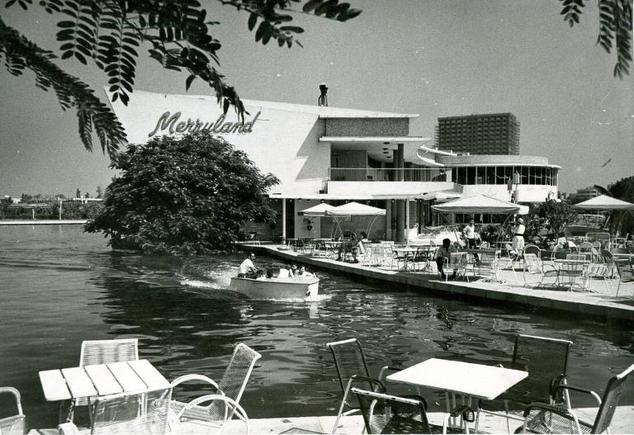It was a symbol of a more liberal Egypt where young Muslims and Christians mingled under its leafy canopies, bands played and a young Omar Sharif wooed the glamorous Faten Hamama in the classic film romance “The River of Love”.
A rare oasis in a metropolis home to about 20 million people, Merryland park offered respite from Cairo’s dusty, traffic-choked cacophony.
Families sipped lemonade on its terraces and paddle-boated on its lake.
“Merryland was a vent for eastern Cairo,” said Magdy Badr al-Din, whose balcony overlooks the park.
But for the former civil servant and his neighbours, that storied heyday, and the more tolerant times that went with it, are just a memory and now the park is run down.
Now developers have moved in to build a car park on part of the gardens, and many of its rare trees, imported from around the world, have been uprooted, causing consternation in the surrounding upscale Heliopolis neighbourhood.
Campaigners forced a halt to the work but as arguments drag on, the park has been closed to the public and all efforts to rejuvenate its gardens remain on hold.
Merryland was the brainchild of Gamal Abdel Nasser, who came to power after a military coup in 1952 that ended the monarchy and modernised the country.
Nasser returned from a trip to the United States and decided that Cairo should take its place among the great cities of the world by having a park worthy of its size.
The 50-acre Merryland park was inaugurated in 1963, an event Iman Farrag, a social scientist, still remembers. Her father took her there as a child.
“It was a place where people mixed,” she said.
– Bands and belly dancers –
The park became a cultural mainstay in the capital, fittingly for a city that had become the cinematic and musical capital of the Arab world.
Saleh Abdel Magid, a retired army general, married in the park in 1978.
“I just held the ceremony in Merryland. There was a band playing, and one of the most famous belly dancers, Suhair Zaky, would dance there weekly,” he said.
Young men and women, Muslims and Christians, mixed in contrast to the increased Islamic conservatism seen since the 1980s, Farrag said.
“Boys and girls would hang out, and the girls didn’t wear hijabs. Alcohol was served, and it was hard to tell Muslims and Christians apart.”
But Cairo’s incessant expansion squeezed Heliopolis on all sides. Tall apartment blocks now loom overhead, and above them hangs the ever present smog.
The country itself has faded in the region, no longer the cultural and political beacon it was under Nasser, while the religious and class divides he tried to dispel have grown.
Many Muslim women have adopted the hijab, and many Christians have begun sporting small crucifix tattoos on their wrists.
The park was built on the site of a hippodrome, where Arabian horses rumbled around a track before an excited crowd.
The stands where Egyptian royalty watched the races have been preserved, a lone reminder of an age before the military took power.
The racetrack itself had been part of Egypt’s cultural heritage, featuring in memorable films including “The River of Love” in 1960 — one of he greatest Egyptian screen love stories — starring Sharif and Hamama, his former wife, herself an icon of Arab cinema.
Scenes from “The Empty Pillow”, starring the “Sinatra of the Nile” Abdel Halim Hafez, were also shot there.
– ‘Unacceptable state’ –
Now the park is in ruins and closed to visitors. A small building that served as a restaurant is covered in grime.
The pond, once alive with children in small rowboats and swans, is empty.
Asma al-Halujy, a conservationist, said 38 trees had been destroyed, some more than 60 years old.
The Heliopolis Company for Housing and Construction, which oversees the park, plans to move some of the trees to make way for cars.
“The traffic department asked us to create a parking space as a condition for renovating the park and setting up new cafes and restaurants,” said its head Ali Mostafa.
The neighbourhood’s residents, especially those who grew up during Merryland’s heyday, organised a campaign to save the green space, forcing a halt to the work.
Its fate could lie in the hands of Prime Minister Ibrahim Mahlab who is expected to make a decision on whether to nationalise the park.
“The state Merryland has reached over the past decade is unacceptable,” Environment Minister Khaled Fahmy told AFP.
“We need to develop it in a way that preserves it beauty.”

COMMENTS
Please let us know if you're having issues with commenting.